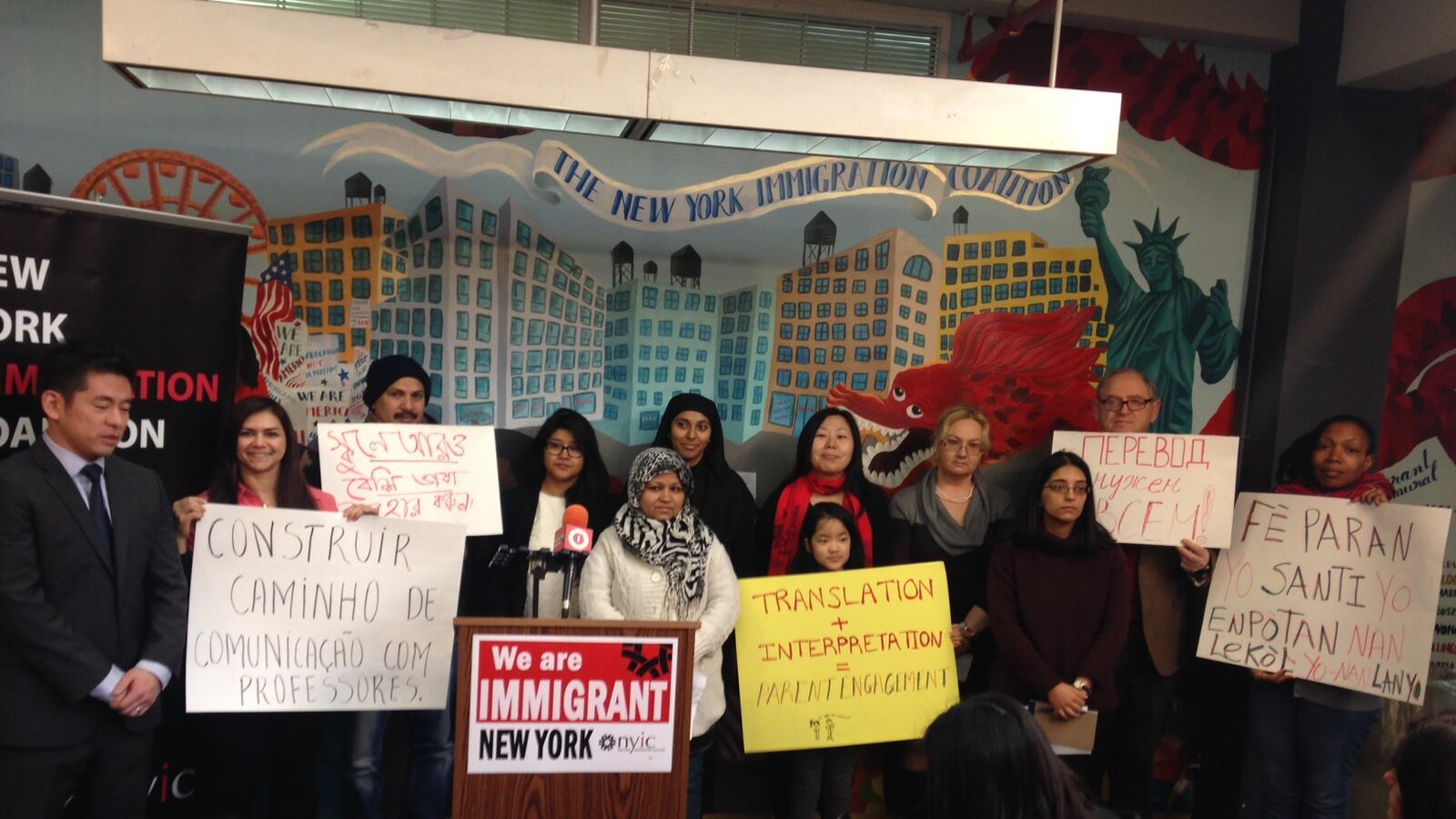Immigrants’ rights advocates are seizing on coming changes to the city’s school-support structure as a chance to request better translation services for parents.
A consortium of advocacy groups called on the Department of Education on Tuesday to put a staff member in charge of translation and interpretation services in each superintendent’s office, which are set to grow as part of a reorganization of the school system that will begin this summer. Those offices — or the new borough centers — will be in the best position to help schools struggling to provide materials to parents in their native languages, they said.
“There’s something very real at stake here for our immigrant families,” said Kim Sykes of the New York Immigration Coalition. “So many of them come to the U.S., come to New York City, precisely because they want their children to have a better education. They really want to know what is going on and they want and need to be able participate actively.”
Federal education law requires the city to make translation and interpretation services available to parents in their native language, and city regulations also require the Department of Education to provide vital student documents translated into the parent’s language. Responsibility for some of those services rests with individual schools, and others are overseen by the department’s Translation and Interpretation Services Unit.
Chancellor Carmen Fariña has committed new resources to a variety of programs targeting English language learning students and parent engagement. Meanwhile, the mayor’s proposed budget includes $800,000 for a hotline specifically to make sure limited English proficient parents are aware of language services they’re eligible for.
At a Tuesday press conference, parents said there is a long way to go. And advocates see an opportunity in Fariña’s structural changes, which officials have said should improve parents’ ability to seek help and lodge complaints.
In her most sweeping reform effort to date, the chancellor is shifting power to oversee and assist schools back to geographically organized superintendents, and creating new borough field support centers to help schools with academic and operational matters and with supporting students with special needs.
The coalition is proposing placing the staff members responsible for improving translation and interpretation services in either the superintendent’s offices or in the borough centers to be closer to the schools and parents requiring help. They would then work with schools to provide in-person translation services and make sure materials sent home are delivered in the parents’ native language, among other responsibilities. (Each superintendent’s office will already have two “family engagement officers,” according to city officials.)
On Tuesday, parents said that help was still sorely needed, telling stories of student report cards and progress reports not being sent home in a parent’s native language, fliers telling parents about their right to translation services mailed home in English, and parent-teacher conferences and school workshops held without translation services. Earlier this year, middle school guides were not translated for weeks after being released in English.
In 2012, Advocates for Children along with New York Lawyers for Public Interest filed a lawsuit against the city claiming it was not providing translation and interpretation services for non-English speaking parents of special education students, which has not yet been resolved.
“When I take time out of my schedule to become involved in my kid’s school and I am not getting the translation services I need, it has an impact on how well they are doing in school and the amount of money I bring into my household,” Samsun Nahar, a Bronx parent and member of the South Asian immigrant advocacy group Desis Rising Up and Moving, said through a translator.
A Department of Education spokeswoman said the Translation and Interpretation Unit trained 850 teachers, principals and other staff members to work with parents with limited English proficiency in 2013, and the department plans to train more staff members. The department will also produce “culturally sensitive communications in subway ads, radio ads and communities across the city,” spokeswoman Yuridia Peña said in a statement.
“This is a critical aspect of the Chancellor’s vision — to include parents as partners in all aspects of their child’s education,” Peña said.


